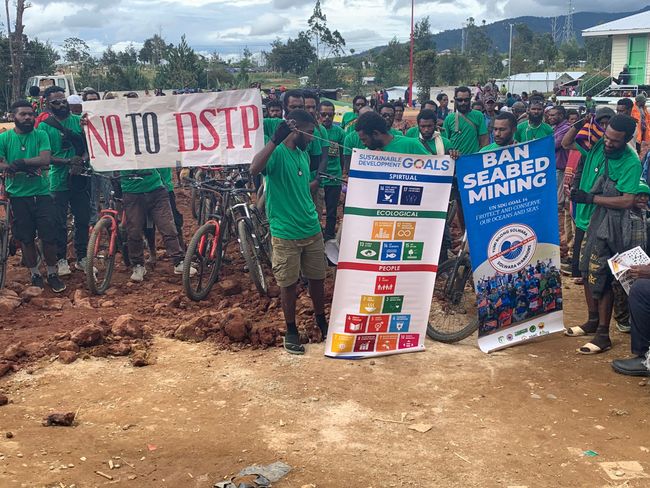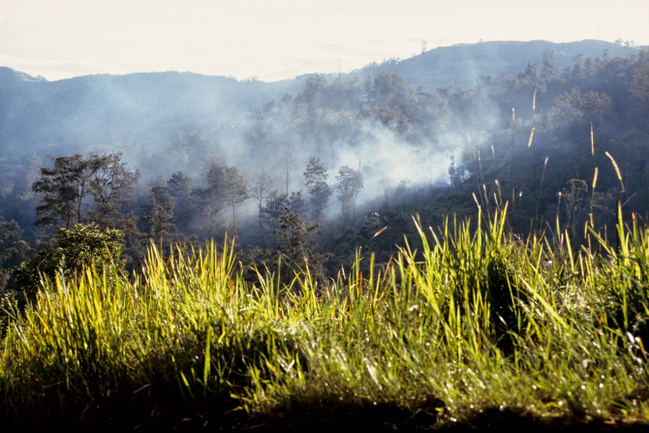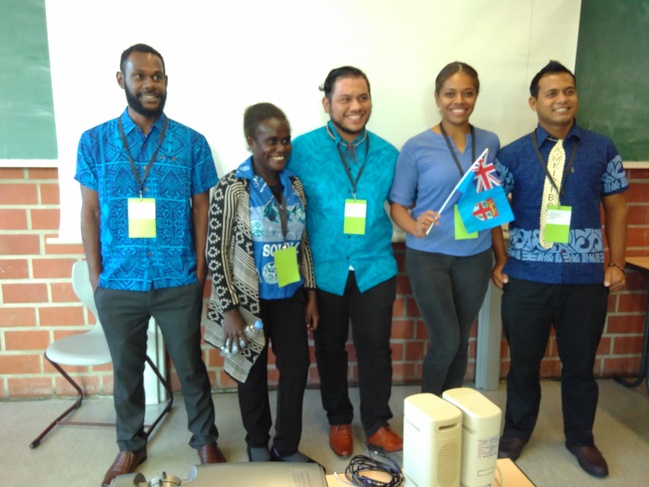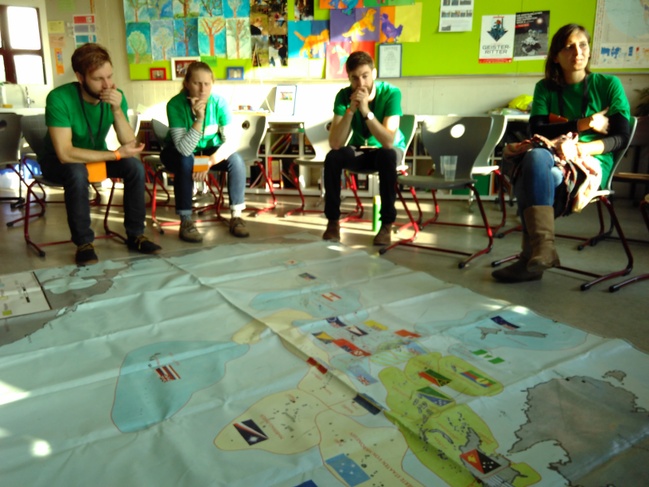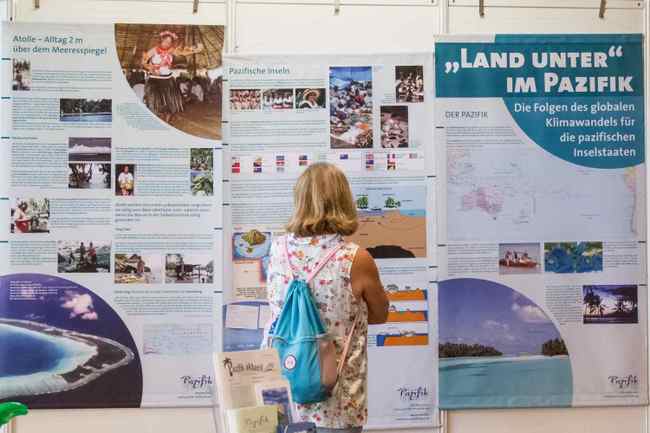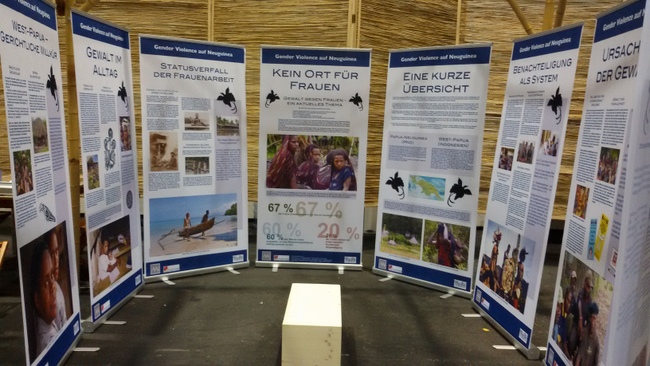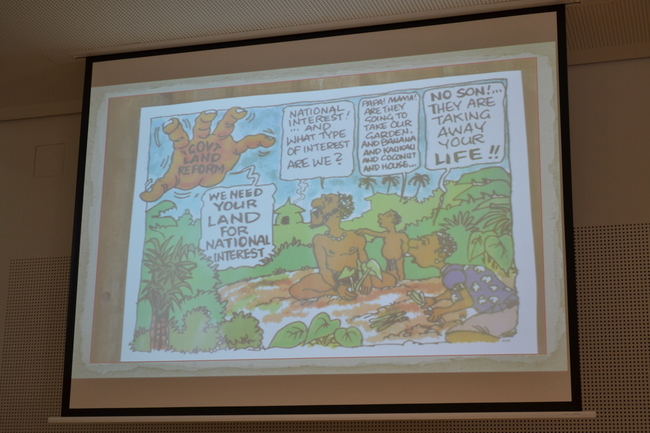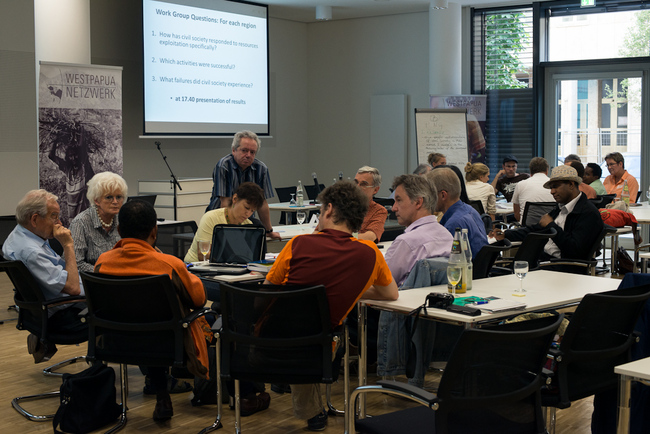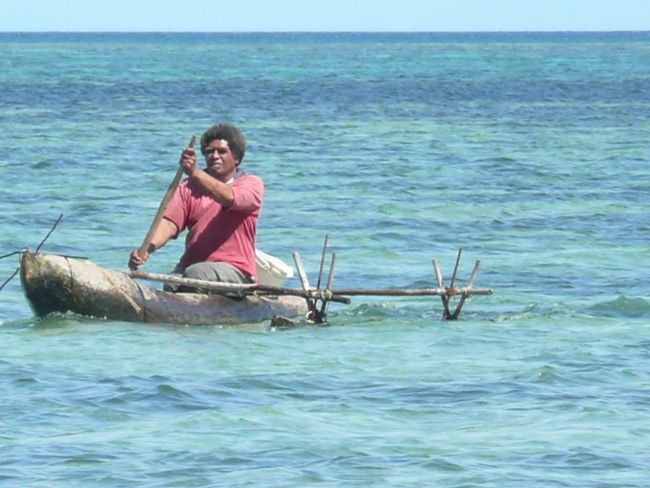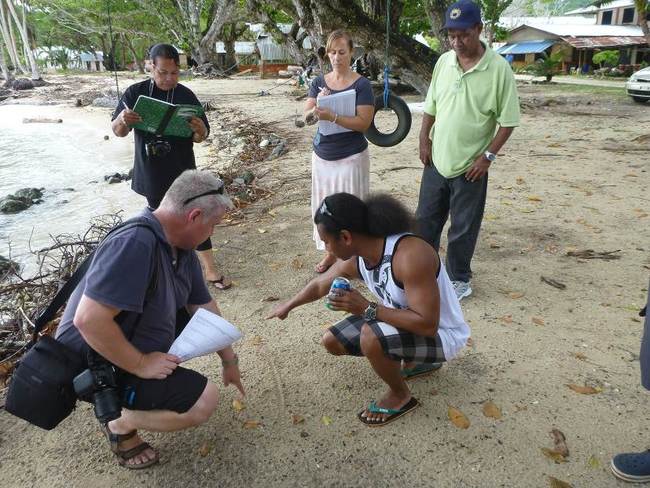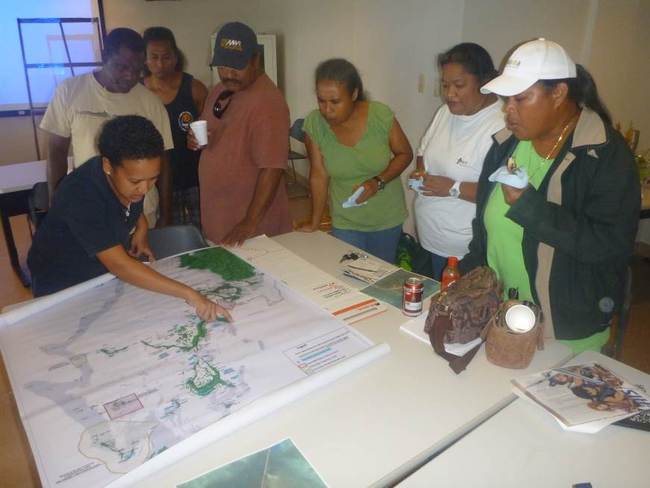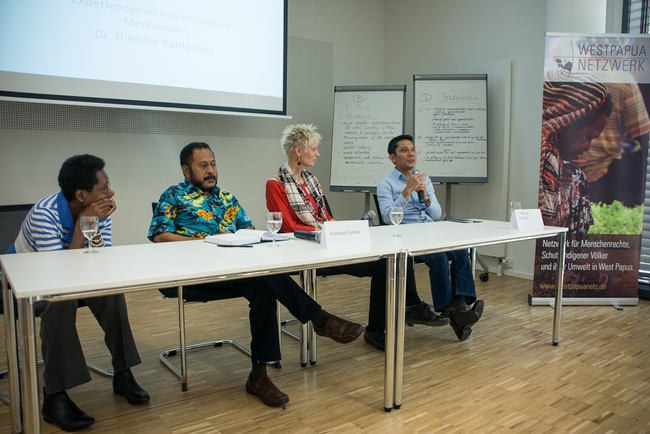On the run
25.11.2010: Final statement of the participants of the Conference on European and Pacific Responses to Climate Change in the Pacific declared in Berlin, Germany on 21 November 2010
As early as 1990 in the First Assessment Report of the Intergovernmental Panel on Climate Change (IPCC, 1990), it was estimated that by 2050, 75 million people in the Asia-Pacific region may be forced to leave their homes due to the impacts of climate change. The peoples of the vast and diverse region of Oceania face the special threat of whole island countries being uninhabitable, which brings to bear issues of socio-cultural and national identities.
The impacts of anthropogenic climate change on the people, flora and fauna, the land, the sea and upon the rich cultures of the Pacific Islands are major concerns that need to be addressed. Sea level rise and the warming of the ocean due to anthropogenic activities threaten not only Earth’s biodiversity but also food and water security and therefore the livelihoods of the peoples of Oceania and other vulnerable world regions. It is incumbent on us all to begin a comprehensive discussion and discourse engaging all academic disciplines on the far reaching implications of forced relocation and displacement of Pacific peoples. The international community, especially the industrialized countries, must lead and take greater responsibility for the climate change discourse and the very real threats to the survival of the most vulnerable peoples. Immediate action has to be undertaken to ensure that the forced displacement of Pacific peoples and their concerns about the loss of their homelands is being seriously considered. Appropriate action can take the form of supporting organizations already working on the issue at the grassroots and community level. Genuine support can be realized by the careful allocation of financial resources for community based adaptation and to initiate the resettlement discourse at the community, national and international policy-setting forums.
On the basis of the concerns expressed we appeal for greater:
1) Recognition of the threat of climate change to the peoples of the Pacific, who are among those most vulnerable to its impacts. Plans and options for the global crisis of a forced population displacement need to be explored now. Also within the Pacific region the stronger consideration of resettlement as a measure of last resort is needed on community, local, national and international levels.
2) Commitment to moral and ethical responsibility to the issue of climate induced resettlement. This is not just because of the historical and ecological debt, which industrialized countries carry, but an issue of justice. Every individual, nation and international group needs to take responsibility and therefore take on the urgent need for more immediate action.
3) Consideration of the human rights aspect of climate change. The dignity of people displaced by climate change has to be a guiding principle of all plans and actions taken. In the same way the human rights of the communities receiving displaced people need to be respected.
4) Clarification of terminology. This is to allow for the application and holistic protection of international protection regimes to people displaced by climate change. People who will be forced to migrate due to climate change have to be included in the terminology currently used and regimes already in place.
5) Support in identifying land and other resources for people displaced by climate change, nationally, interregionally and internationally. The international community is being urged to move swiftly on this issue and to genuinely commit to generously financing the mitigation and adaptation projects of communities and countries most vulnerable to climate change.
6) Funding. This is crucial as people displaced by climate change are primarily from regions in the developing global South. Industrialized countries need to provide financial resources that are new, additional, adequate, predictable, and sustainable, on an intelligible transparent grant basis.
7) Respect for the traditions and cultures of people displaced by climate change, which must be a precondition to all actions undertaken. As such the principle of free, prior and informed consent must prevail. Indigenous peoples’ link to the land is fundamental for most of the Pacific communities; the decision to resettle needs to be well-founded and unavoidable. Furthermore, climate change migrants need to be empowered to become agents of their own resettlement process, not victims of it. Capacity building, transparent consultations, the provision of relevant information and the rehabilitation at resettlement destinations are to be guidelines of the required help from outside. The preservation of their way of life (right to culture), as reflected in traditional knowledge and local culture, including all aspects of personal, family, social, political and spiritual life, needs to be strongly supported to help affected migrants maintain and keep alive their cultures, languages and national identities.
8) Collaboration between national and international groups, European and Pacific NGOs, churches and governments. This needs to be enhanced so as to lobby for stronger Carbon Reduction Commitment and a fair, just and legally binding agreement from the COP16 in Cancún, Mexico, and the COP17 in South Africa. The meeting also reaffirms its commitment to the principles and provisions of the UNFCCC, the Kyoto Protocol and the Bali Road Map.
9) Awareness of the current impacts and future threats of climate change, which needs to be amplified among the media and public on national and international levels. The issue of climate change resettlement needs to be on the official agenda of the Pacific Islands Forum (PIF), member countries of the Alliance of Small Island States (AOSIS), Small Islands Developing States (SIDS), the European Union (EU), African Union (AU), Caribbean Community (CARICOM), the United Nations General Assembly and UN Economic and Social Council.
10) Efforts in pleading for the strongest outcome of the UNFCCC COP 16 and 17 that is fair, just and legally binding; an agreement that is based on most recent scientific findings and is more than adequate to safeguard planet Earth and its inhabitants.



